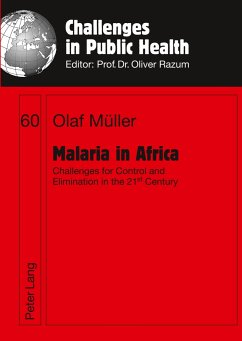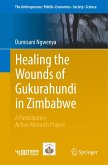About half of the world's population is still at risk for contracting malaria, and the main disease burden is now in sub-Saharan Africa (SSA). As a result of the activities of a number of new and powerful Global Health Initiatives , malaria morbidity and mortality has recently started to decrease and the idea of eradication has re-emerged. This book provides a comprehensive update on the recent developments of the epidemiology of malaria and of existing strategies and tools for malaria control and elimination in Africa, which is discussed in the context of the long global history of malaria control. The main message is that the ambitious Global Malaria Action Plan of RBM will fail without serious efforts to systematically and massively strengthen the health systems of African countries.
Bitte wählen Sie Ihr Anliegen aus.
Rechnungen
Retourenschein anfordern
Bestellstatus
Storno








